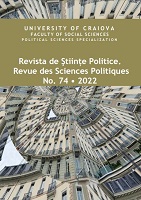The Principle of Least Effort in Technical Register. A Case Study on Students in Automation
The Principle of Least Effort in Technical Register. A Case Study on Students in Automation
Author(s): Adrian-Florin BușuSubject(s): Language studies, Lexis
Published by: Editura Universitaria Craiova
Keywords: principle; effort; code; transfer; efficiency;
Summary/Abstract: Also known as Zipf’s Law, the Principle of Least Effort is the theory according to which one single primary principle in any human action, including verbal communication, represents the expenditure of the least ammount of effort to accomplish a task. When this principle is applied to linguistics, it can be reduced to the following observation: the more frequent a word is, the shorter it tends to be. Zipf claimed that this specific attribute occurs as a consequence of human attempt to maximize word connotation framings in circumstances dictated by factors such as dynamic constraints to communicate in an accurate manner, or the desire to efficiently exchange information. This article presents the results of a case study conducted for a period of 6 weeks on students in the first year at the Faculty of Automation, Computers and Electronics from University of Craiova and provides direct experimental evidence to support Zipf’s explanatory hypothesis. The findings of this case study suggest that the communicative pressure acting on language users is directly responsible for the frequency relationships in the vocabulary. This article promotes an approach on language as an efficient code for information transfer and concludes that lexicon naturally evolves towards greater efficiency.
Journal: Revista de Științe Politice. Revue des Sciences Politiques
- Issue Year: 2022
- Issue No: 74
- Page Range: 97-106
- Page Count: 10
- Language: English

